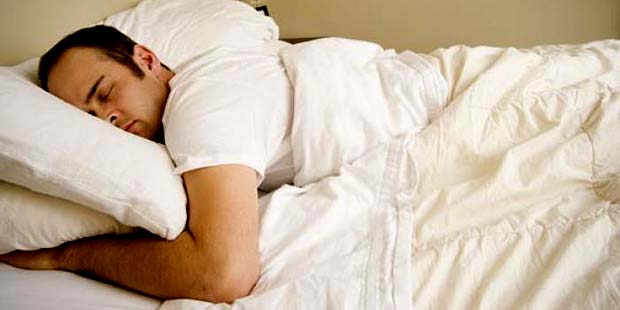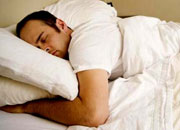
If you’re what researchers call a short sleeper (measured by how long you sleep each night—5.5 to 6 hours or less qualifies you), you’ll have trouble losing weight, no doubt about it. In a 7-year study of 7,022 middle-aged people, Finnish researchers found that women who reported sleep problems were more likely to experience a major weight gain (defined as 11 pounds or more).
You know that sleep and weight gain may be linked, but why is that? According to ABC News, here’s what the earth-shattering new research has revealed, and why lack of sleep could be stalling your ability to lose weight and keep it off:
Sleep Less, Burn Less
In a study at the department of neuroendocrinology at the University of Lübeck, Germany, published in the American Journal of Clinical Nutrition, researchers had a group of men sleep for 12 hours a night but didn’t allow them to sleep the next night, and then had them eat an opulent buffet the following morning: The result? Those that slept less, burned less calories.
Sleep Less, Eat More
In research presented at the American Heart Association’s 2011 Scientific Sessions by Marie-Pierre St. Onge, Ph.D., a research associate at Columbia University’s New York Obesity Research Center, sleep deprivation was tied to higher calorie intake:
- Participants consumed an average of 296 calories more when they were sleep-deprived compared with when they were well-rested.
- When women were sleep-deprived they ate an average 329 more calories a day vs. when they were well-rested; men ate 263 more calories.
- Overall, most of the extra calories came from high-fat foods such as ice cream and fast foods.
- When women were sleep-deprived, they ate an average of about 31 more fat grams a day. Men’s fat intake didn’t climb that much.
Read more: 9 Other Reasons Not to Skimp on Sleep


 Are you ready to look better, feel more energized, and get back that youthful feeling you remember having as a kid? I can help you on a journey that will change the way you eat — for good. My
Are you ready to look better, feel more energized, and get back that youthful feeling you remember having as a kid? I can help you on a journey that will change the way you eat — for good. My 














 As a healthy cooking expert, health coach and TV host,
As a healthy cooking expert, health coach and TV host, 



Speak Your Mind